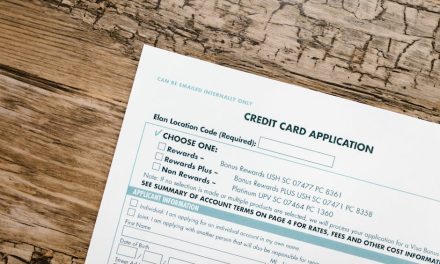Table of Contents
- Introduction
- Benefits of Regular Self-Assessment for Business Leaders
- How Self-Assessment Can Improve Decision Making
- Identifying Strengths and Weaknesses Through Self-Assessment
- Setting Goals and Objectives Based on Self-Assessment
- Enhancing Leadership Skills Through Self-Reflection
- The Role of Self-Awareness in Effective Leadership
- Overcoming Challenges Through Self-Assessment
- Creating a Personal Development Plan from Self-Assessment
- Measuring Success and Progress Through Self-Evaluation
- Q&A
- Conclusion
“Know thyself, lead thy business to success.”
Introduction
Self-assessment is a critical tool for business leaders to evaluate their strengths, weaknesses, and areas for improvement. By taking the time to reflect on their own performance and skills, leaders can make more informed decisions, set realistic goals, and ultimately drive their organizations towards success. In this article, we will explore the importance of self-assessment for business leaders and how it can help them become more effective in their roles.
Benefits of Regular Self-Assessment for Business Leaders
Self-assessment is a critical tool for business leaders to evaluate their strengths, weaknesses, and areas for improvement. By taking the time to reflect on their performance and behaviors, leaders can gain valuable insights that can help them become more effective in their roles. Regular self-assessment is essential for personal growth and development, as well as for the success of the organization as a whole.
One of the key benefits of self-assessment for business leaders is increased self-awareness. By examining their actions, decisions, and interactions with others, leaders can gain a better understanding of their strengths and weaknesses. This self-awareness can help leaders identify areas where they excel and where they may need to improve. By recognizing their strengths, leaders can leverage them to achieve greater success, while addressing their weaknesses can help them become more effective in their roles.
Self-assessment also allows business leaders to set goals and track their progress over time. By identifying areas for improvement, leaders can create a plan to address these weaknesses and work towards achieving their goals. Regular self-assessment can help leaders stay focused and motivated, as they can see the progress they are making towards their objectives. Setting goals and regularly assessing their performance can help leaders stay on track and continue to grow and develop in their roles.
Another benefit of self-assessment for business leaders is improved decision-making. By reflecting on past decisions and outcomes, leaders can learn from their mistakes and make better choices in the future. Self-assessment can help leaders identify patterns in their decision-making process and recognize when they may be making decisions based on biases or emotions. By taking the time to evaluate their decisions, leaders can become more strategic and thoughtful in their approach, leading to better outcomes for the organization.
Self-assessment can also help business leaders build stronger relationships with their teams. By reflecting on their interactions with others, leaders can gain insights into how their behavior impacts those around them. This self-awareness can help leaders communicate more effectively, build trust with their team members, and create a positive work environment. By understanding their strengths and weaknesses in interpersonal relationships, leaders can become more empathetic and supportive, leading to stronger connections with their employees.
In conclusion, self-assessment is a valuable tool for business leaders to evaluate their performance, set goals, and make better decisions. By taking the time to reflect on their actions and behaviors, leaders can gain valuable insights that can help them become more effective in their roles. Regular self-assessment can lead to increased self-awareness, improved decision-making, and stronger relationships with team members. By making self-assessment a regular practice, business leaders can continue to grow and develop in their roles, leading to greater success for themselves and their organizations.
How Self-Assessment Can Improve Decision Making
Self-assessment is a critical tool for business leaders looking to improve their decision-making skills. By taking the time to reflect on their strengths, weaknesses, and areas for growth, leaders can gain valuable insights that can help them make more informed and effective decisions.
One of the key benefits of self-assessment is that it allows leaders to identify their blind spots. We all have areas where we may not excel or where we may struggle, and by taking the time to honestly assess ourselves, we can uncover these blind spots and work to address them. This can help leaders make better decisions by ensuring that they are not overlooking important factors or making decisions based on faulty assumptions.
Self-assessment can also help leaders identify their strengths and leverage them to their advantage. By understanding what they excel at, leaders can make decisions that play to their strengths and maximize their impact. This can lead to more successful outcomes and help leaders build confidence in their decision-making abilities.
In addition to helping leaders identify their blind spots and strengths, self-assessment can also help them develop a growth mindset. By recognizing areas where they need to improve and actively working to address them, leaders can cultivate a mindset of continuous learning and improvement. This can lead to more innovative and effective decision-making as leaders are willing to take risks and try new approaches.
Self-assessment can also help leaders build self-awareness, which is a key trait for effective decision-making. By understanding their own motivations, biases, and emotions, leaders can make decisions that are more aligned with their values and goals. This can help them avoid making decisions based on impulse or emotion and instead make choices that are rational and strategic.
Overall, self-assessment is a powerful tool for business leaders looking to improve their decision-making skills. By taking the time to reflect on their strengths, weaknesses, and areas for growth, leaders can gain valuable insights that can help them make more informed and effective decisions. Self-assessment can help leaders identify their blind spots, leverage their strengths, develop a growth mindset, and build self-awareness, all of which are critical for making sound decisions in today’s fast-paced and complex business environment.
In conclusion, self-assessment is an essential practice for business leaders who want to improve their decision-making skills. By taking the time to reflect on their own abilities and areas for growth, leaders can gain valuable insights that can help them make more informed and effective decisions. Self-assessment can help leaders identify their blind spots, leverage their strengths, develop a growth mindset, and build self-awareness, all of which are critical for making sound decisions in today’s competitive business landscape. By incorporating self-assessment into their regular routine, leaders can enhance their decision-making abilities and drive success for themselves and their organizations.
Identifying Strengths and Weaknesses Through Self-Assessment
Self-assessment is a critical tool for business leaders to identify their strengths and weaknesses. By taking the time to reflect on their own performance, leaders can gain valuable insights into areas where they excel and areas where they need to improve. This process of self-reflection can help leaders make more informed decisions, set realistic goals, and ultimately drive their organizations towards success.
One of the key benefits of self-assessment is that it allows leaders to gain a better understanding of their own capabilities. By evaluating their skills, knowledge, and experiences, leaders can identify areas where they excel and leverage those strengths to their advantage. For example, a leader who excels in strategic thinking may be able to use this skill to develop innovative solutions to complex problems or to identify new opportunities for growth.
On the other hand, self-assessment also helps leaders identify areas where they may need to improve. By acknowledging their weaknesses, leaders can take steps to address them through training, mentorship, or other development opportunities. For example, a leader who struggles with delegation may benefit from learning how to empower their team members and trust them to take on more responsibility.
Self-assessment can also help leaders set realistic goals for themselves and their organizations. By understanding their own strengths and weaknesses, leaders can develop a clear vision of where they want to go and what they need to do to get there. This process of goal-setting can help leaders stay focused and motivated, even in the face of challenges or setbacks.
In addition, self-assessment can help leaders improve their decision-making skills. By reflecting on past decisions and their outcomes, leaders can identify patterns of behavior that may be hindering their ability to make effective choices. For example, a leader who tends to make decisions impulsively may benefit from taking a more deliberate approach and seeking input from others before making a final choice.
Overall, self-assessment is a valuable tool for business leaders to gain a deeper understanding of themselves and their organizations. By identifying their strengths and weaknesses, setting realistic goals, and improving their decision-making skills, leaders can drive their organizations towards success and create a positive impact on their teams and stakeholders.
In conclusion, self-assessment is an essential practice for business leaders who want to excel in their roles and drive their organizations towards success. By taking the time to reflect on their own performance, leaders can gain valuable insights into their strengths and weaknesses, set realistic goals, and improve their decision-making skills. Ultimately, self-assessment can help leaders become more effective and impactful in their roles, leading to greater success for themselves and their organizations.
Setting Goals and Objectives Based on Self-Assessment

Self-assessment is a critical tool for business leaders to evaluate their strengths, weaknesses, and areas for improvement. By taking the time to reflect on their own performance and skills, leaders can set meaningful goals and objectives that align with their personal and professional development. In this article, we will explore the importance of self-assessment for business leaders and how it can help them achieve success in their roles.
Self-assessment allows business leaders to gain a deeper understanding of their capabilities and limitations. By evaluating their skills, knowledge, and experiences, leaders can identify areas where they excel and areas where they may need to improve. This self-awareness is essential for setting realistic goals and objectives that are achievable and relevant to their roles.
Setting goals and objectives based on self-assessment helps business leaders focus their efforts on areas that will have the greatest impact on their performance and the success of their organizations. By identifying their strengths, leaders can leverage them to drive innovation, collaboration, and growth. Conversely, by acknowledging their weaknesses, leaders can take steps to address them through training, mentorship, or other development opportunities.
Self-assessment also allows business leaders to align their goals and objectives with the strategic priorities of their organizations. By understanding their own strengths and weaknesses, leaders can set goals that support the overall mission and vision of their companies. This alignment ensures that leaders are working towards common objectives that benefit both themselves and their organizations.
Moreover, self-assessment helps business leaders track their progress towards their goals and objectives. By regularly evaluating their performance and reflecting on their achievements, leaders can make adjustments to their strategies and actions to stay on track. This continuous feedback loop is essential for driving continuous improvement and ensuring that leaders are constantly evolving and growing in their roles.
In addition, self-assessment can help business leaders identify opportunities for career advancement and professional development. By understanding their own strengths and weaknesses, leaders can seek out opportunities that will allow them to further develop their skills and experiences. This proactive approach to self-improvement can open doors to new challenges, responsibilities, and leadership roles within their organizations.
Overall, self-assessment is a powerful tool for business leaders to set meaningful goals and objectives that align with their personal and professional development. By evaluating their own performance, skills, and experiences, leaders can identify areas for improvement, leverage their strengths, and align their goals with the strategic priorities of their organizations. This self-awareness and proactive approach to self-improvement are essential for driving success in today’s fast-paced and competitive business environment. Business leaders who take the time to reflect on their own performance and set goals based on self-assessment are better equipped to lead their organizations to success and achieve their full potential as leaders.
Enhancing Leadership Skills Through Self-Reflection
Self-assessment is a critical tool for business leaders looking to enhance their leadership skills. By taking the time to reflect on their strengths, weaknesses, and areas for improvement, leaders can gain valuable insights that can help them become more effective in their roles. Self-assessment allows leaders to identify their unique leadership style, understand how they are perceived by others, and develop a plan for continuous growth and development.
One of the key benefits of self-assessment is that it provides leaders with a clear understanding of their strengths. By identifying what they excel at, leaders can leverage these strengths to drive success within their organizations. For example, a leader who excels at strategic thinking may be able to develop innovative solutions to complex problems, while a leader who excels at communication may be able to inspire and motivate their team to achieve their goals.
In addition to identifying strengths, self-assessment also allows leaders to pinpoint areas for improvement. By acknowledging their weaknesses, leaders can take proactive steps to address them and become more well-rounded leaders. For example, a leader who struggles with delegation may benefit from developing their trust in their team members and learning to let go of control. By focusing on areas for improvement, leaders can become more effective in their roles and drive better results for their organizations.
Self-assessment also helps leaders understand how they are perceived by others. By soliciting feedback from colleagues, employees, and mentors, leaders can gain valuable insights into how their actions and behaviors are perceived by those around them. This feedback can help leaders identify blind spots and make necessary adjustments to their leadership style. For example, a leader who is perceived as overly controlling may benefit from learning to trust their team members and empower them to make decisions.
Furthermore, self-assessment allows leaders to develop a plan for continuous growth and development. By setting goals and objectives for themselves, leaders can track their progress and make adjustments as needed. This proactive approach to self-improvement can help leaders stay ahead of the curve and continue to evolve as leaders. For example, a leader may set a goal to improve their emotional intelligence by attending workshops and seeking feedback from others.
In conclusion, self-assessment is a valuable tool for business leaders looking to enhance their leadership skills. By taking the time to reflect on their strengths, weaknesses, and areas for improvement, leaders can gain valuable insights that can help them become more effective in their roles. Self-assessment allows leaders to identify their unique leadership style, understand how they are perceived by others, and develop a plan for continuous growth and development. By leveraging self-assessment, leaders can become more well-rounded, effective leaders who drive success within their organizations.
The Role of Self-Awareness in Effective Leadership
Self-awareness is a critical component of effective leadership. Business leaders who possess a high level of self-awareness are better equipped to understand their strengths and weaknesses, make informed decisions, and build strong relationships with their team members. Self-awareness allows leaders to recognize their own emotions and how they impact their behavior, as well as understand how their actions and decisions affect those around them.
One of the key benefits of self-awareness for business leaders is the ability to make more accurate self-assessments. By taking the time to reflect on their own performance, leaders can identify areas for improvement and set goals for personal and professional growth. Self-assessment allows leaders to take ownership of their development and actively work towards becoming the best version of themselves.
Self-assessment also plays a crucial role in fostering a culture of continuous improvement within an organization. When leaders model the behavior of self-assessment and self-reflection, they set a positive example for their team members to follow. This can create a culture where feedback is valued and employees are encouraged to take ownership of their own development.
In addition to personal growth, self-assessment can also have a positive impact on business performance. By regularly evaluating their own performance and seeking feedback from others, leaders can identify areas where they can make improvements that will benefit the organization as a whole. This proactive approach to self-assessment can lead to increased productivity, better decision-making, and ultimately, improved business results.
Self-assessment can also help business leaders to build stronger relationships with their team members. By demonstrating a willingness to reflect on their own behavior and make changes when necessary, leaders can earn the trust and respect of those they lead. This can lead to increased employee engagement, higher levels of job satisfaction, and ultimately, a more cohesive and productive team.
It is important for business leaders to approach self-assessment with an open mind and a willingness to accept feedback, even when it is difficult to hear. Constructive criticism can be a valuable tool for personal and professional growth, and leaders who are able to accept feedback with grace and humility are more likely to succeed in their roles.
In conclusion, self-assessment is a critical component of effective leadership. Business leaders who possess a high level of self-awareness are better equipped to understand their own strengths and weaknesses, make informed decisions, and build strong relationships with their team members. By regularly evaluating their own performance, seeking feedback from others, and taking proactive steps to improve, leaders can set themselves up for success and create a positive and productive work environment for their team.
Overcoming Challenges Through Self-Assessment
Self-assessment is a critical tool for business leaders to overcome challenges and drive success within their organizations. By taking the time to reflect on their own strengths and weaknesses, leaders can gain valuable insights into their leadership style, decision-making processes, and overall effectiveness in driving their teams towards success.
One of the key benefits of self-assessment is the ability to identify areas for improvement. By honestly evaluating their own performance, leaders can pinpoint areas where they may be falling short and take proactive steps to address these weaknesses. This can lead to improved decision-making, better communication with team members, and ultimately, more effective leadership.
Self-assessment also allows leaders to play to their strengths. By recognizing what they excel at, leaders can leverage these strengths to drive success within their organizations. This can lead to increased confidence, better team morale, and ultimately, improved business performance.
In addition to identifying areas for improvement and playing to their strengths, self-assessment can also help leaders to set goals and track their progress towards achieving them. By regularly evaluating their own performance, leaders can ensure that they are on track to meet their objectives and make any necessary adjustments along the way.
Furthermore, self-assessment can help leaders to develop a growth mindset. By constantly seeking feedback and evaluating their own performance, leaders can foster a culture of continuous improvement within their organizations. This can lead to increased innovation, better problem-solving, and ultimately, a more successful business.
Self-assessment can also help leaders to build stronger relationships with their team members. By taking the time to reflect on their own performance, leaders can gain a better understanding of how their actions and decisions impact those around them. This can lead to improved communication, increased trust, and ultimately, a more cohesive and productive team.
Overall, self-assessment is a critical tool for business leaders to overcome challenges and drive success within their organizations. By taking the time to reflect on their own performance, leaders can identify areas for improvement, play to their strengths, set goals, track their progress, develop a growth mindset, and build stronger relationships with their team members. Ultimately, self-assessment can lead to more effective leadership, better decision-making, and improved business performance.
Creating a Personal Development Plan from Self-Assessment
Self-assessment is a critical tool for business leaders looking to improve their skills and performance. By taking the time to reflect on their strengths, weaknesses, and areas for growth, leaders can create a personal development plan that will help them achieve their goals and lead their teams more effectively.
One of the key benefits of self-assessment is that it allows leaders to gain a better understanding of their own strengths and weaknesses. By taking stock of their skills, knowledge, and abilities, leaders can identify areas where they excel and areas where they may need to improve. This self-awareness is essential for effective leadership, as it allows leaders to play to their strengths and work on developing their weaknesses.
Self-assessment also provides leaders with valuable insights into their leadership style and how it impacts their team. By reflecting on their communication style, decision-making process, and approach to conflict resolution, leaders can identify areas where they may need to adjust their behavior in order to be more effective. This self-reflection can help leaders build stronger relationships with their team members and create a more positive work environment.
In addition to helping leaders understand their own strengths and weaknesses, self-assessment can also help them identify areas for growth and development. By setting specific goals for improvement based on their self-assessment, leaders can create a personal development plan that will guide their professional development. This plan can include a variety of activities, such as training programs, coaching sessions, or networking opportunities, that will help leaders build the skills they need to succeed.
Self-assessment can also help leaders track their progress over time and make adjustments to their personal development plan as needed. By regularly reviewing their goals and reflecting on their progress, leaders can ensure that they are on track to achieve their objectives. This ongoing self-assessment can help leaders stay focused and motivated as they work towards their goals.
Overall, self-assessment is a valuable tool for business leaders looking to improve their skills and performance. By taking the time to reflect on their strengths, weaknesses, and areas for growth, leaders can create a personal development plan that will help them achieve their goals and lead their teams more effectively. Self-assessment provides leaders with valuable insights into their own strengths and weaknesses, helps them understand their leadership style, and identifies areas for growth and development. By regularly reviewing their progress and making adjustments to their personal development plan as needed, leaders can ensure that they are on track to achieve their objectives. In conclusion, self-assessment is an essential practice for business leaders who are committed to continuous improvement and professional growth.
Measuring Success and Progress Through Self-Evaluation
Self-assessment is a critical tool for business leaders to measure their success and progress. It allows leaders to reflect on their strengths and weaknesses, identify areas for improvement, and set goals for the future. By taking the time to evaluate their performance, leaders can make informed decisions that will drive their businesses forward.
One of the key benefits of self-assessment is that it provides leaders with a clear understanding of their strengths and weaknesses. By objectively evaluating their performance, leaders can identify areas where they excel and areas where they need to improve. This self-awareness is essential for effective leadership, as it allows leaders to leverage their strengths and address their weaknesses.
Self-assessment also helps leaders set goals for the future. By reflecting on their past performance, leaders can identify areas where they want to grow and develop. This process allows leaders to create a roadmap for their personal and professional development, setting clear objectives that will guide their actions moving forward.
In addition to helping leaders identify areas for improvement and set goals, self-assessment also allows leaders to track their progress over time. By regularly evaluating their performance, leaders can measure their success and determine whether they are on track to achieve their goals. This ongoing evaluation is essential for ensuring that leaders stay focused and motivated, even when faced with challenges or setbacks.
Self-assessment can take many forms, from formal performance reviews to informal self-reflection exercises. Regardless of the method used, the key is for leaders to be honest and objective in their evaluation. This means acknowledging both their successes and their failures, and using this information to make informed decisions about their future actions.
Self-assessment is not only important for individual leaders, but also for the success of the business as a whole. When leaders take the time to evaluate their performance and set goals for the future, they are better equipped to make strategic decisions that will drive the business forward. By continuously assessing their performance, leaders can ensure that they are leading their teams effectively and making decisions that align with the company’s goals and values.
In conclusion, self-assessment is a critical tool for business leaders to measure their success and progress. By reflecting on their strengths and weaknesses, setting goals for the future, and tracking their progress over time, leaders can make informed decisions that will drive their businesses forward. Self-assessment is not only important for individual leaders, but also for the success of the business as a whole. By taking the time to evaluate their performance, leaders can ensure that they are leading their teams effectively and making decisions that align with the company’s goals and values.
Q&A
1. Why is self-assessment important for business leaders?
Self-assessment helps business leaders identify their strengths and weaknesses.
2. How can self-assessment benefit business leaders?
Self-assessment can lead to personal growth, improved decision-making, and better leadership skills.
3. What are some common methods of self-assessment for business leaders?
Common methods include personality assessments, 360-degree feedback, and performance evaluations.
4. How often should business leaders conduct self-assessments?
Business leaders should conduct self-assessments regularly, such as annually or quarterly.
5. What are the potential risks of not engaging in self-assessment as a business leader?
Without self-assessment, business leaders may struggle to adapt to changing circumstances, make poor decisions, and fail to reach their full potential.
6. How can business leaders use self-assessment to set goals and track progress?
By identifying areas for improvement through self-assessment, business leaders can set specific goals and track their progress over time.
7. How can self-assessment help business leaders build stronger relationships with their team?
Self-assessment can help business leaders understand their communication style, leadership approach, and areas for improvement, leading to stronger relationships with their team.
8. What role does self-awareness play in self-assessment for business leaders?
Self-awareness is crucial in self-assessment as it allows business leaders to accurately assess their strengths and weaknesses and make informed decisions for personal and professional growth.
9. How can business leaders use self-assessment to enhance their leadership skills?
By identifying areas for improvement through self-assessment, business leaders can focus on developing specific leadership skills, such as communication, decision-making, and emotional intelligence.
Conclusion
Self-assessment is crucial for business leaders as it helps them identify their strengths and weaknesses, set goals, and make informed decisions. By regularly evaluating their performance and skills, leaders can improve their effectiveness, drive organizational success, and foster a culture of continuous learning and growth. In conclusion, self-assessment is a valuable tool for business leaders to enhance their leadership capabilities and drive sustainable business growth.





